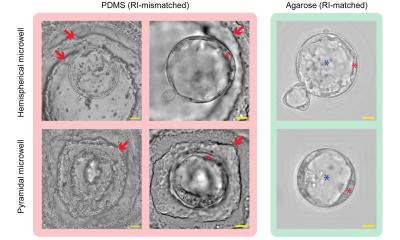Epigenomics
David Loshak reports on a new facility to study heritable changes in gene function, which occur without a change in the DNA sequence
The UK’s Babraham Institute, which conducts biomedical research, has established a ‘high throughput’ epigenomics sequencing facility to improve understanding of healthier ageing.
High throughput sequencing enables decoding genetic material and information not only to be less expensive but also much faster. Whereas it took years to produce the first draft of the human genome sequence, it is now possible to re-sequence 100 human genomes in just one year.
An investment of £1.65 million is being made towards the facility by Cambridge University’s Centre for Trophoblast Research, which studies the outer layer of cells of the blastocyst in pregnancy, and national funding bodies. Chief among these is the UK’s Medical Research Council, which is putting a total of £7 million towards fundamental genetics research at Babraham and two other units.
Babraham’s new facility will study heritable changes in gene function, which occur without a change in the sequence of the DNA. That will help to show how lifestyle can affect the health of future generations at a genetic level.
The powerful sequencing system can identify minute and previously undetectable differences between DNA samples by, for example, pinpointing chemical modifications to just one base pair.
‘It is the genetic needle in a haystack of chromosomal information,’ says Dr Wolf Reik, Professor of Epigenetics at Cambridge and associate director at Babraham. ‘The new facilities will give a huge boost to our epigenetics and chromatin research, cell signalling, immunology and their applications in biomedicine. In particular, we will gain detailed insights into how the genome and chromosomes are modified and dynamically arranged within the cell nucleus so that thousands of genes can be regulated during development and in the adult organism.
‘The ability to unravel whole epigenomes during normal development and healthy ageing, and to understand how epigenomes are modified by the environment and nutrition, is an exciting prospect. Altered regulation of the epigenome is likely to underlie many common human diseases.
‘Unlocking the principles of epigenome reprogramming is key to harnessing the promises of regenerative medicine and stem cell therapy.’
Epigenetic programming and reprogramming occurred in the early embryo and the primordial germ cells on a large scale, Dr Reik explained. If the Manipulating reprogramming proved possible and successful, it could transform regenerative medicine and lead to novel cancer therapies.
The latest technology enabled large amounts of data to be rapidly generated, he added.
Babraham Institute’s research focuses on understanding the biological events that underlie the normal functions of cells and on how their failure or abnormality might lead to disease.
Its scientists hope to find cures for conditions for which there is no safe and effective treatment. These include neurodegenerative disorders, birth defects, cancer and diseases of the immune and cardiovascular systems.
Researchers say that high throughput sequencing is revolutionising scientific understanding of how organisms, from bacteria to humans, work and how some diseases are so often inherited.
26.01.2010





